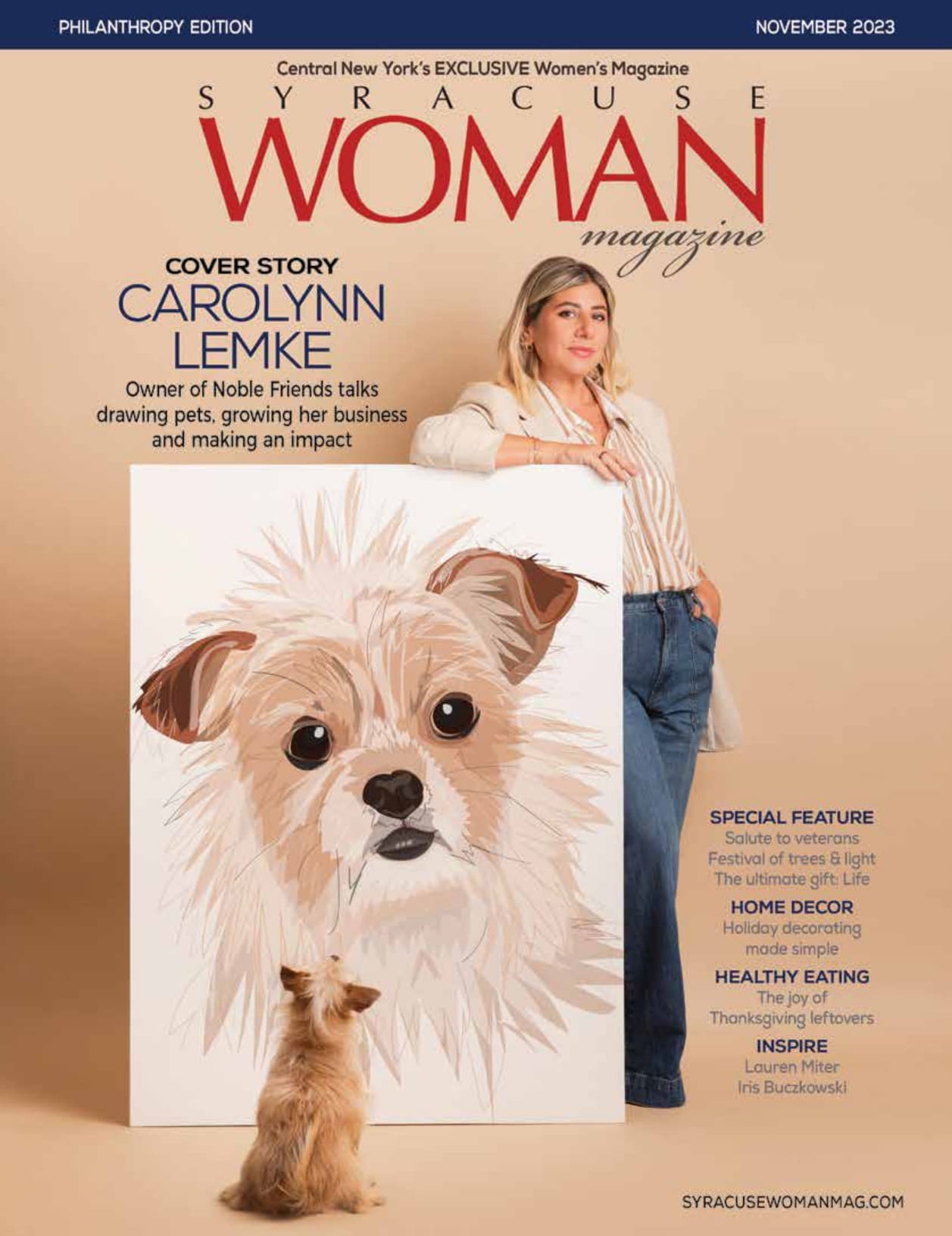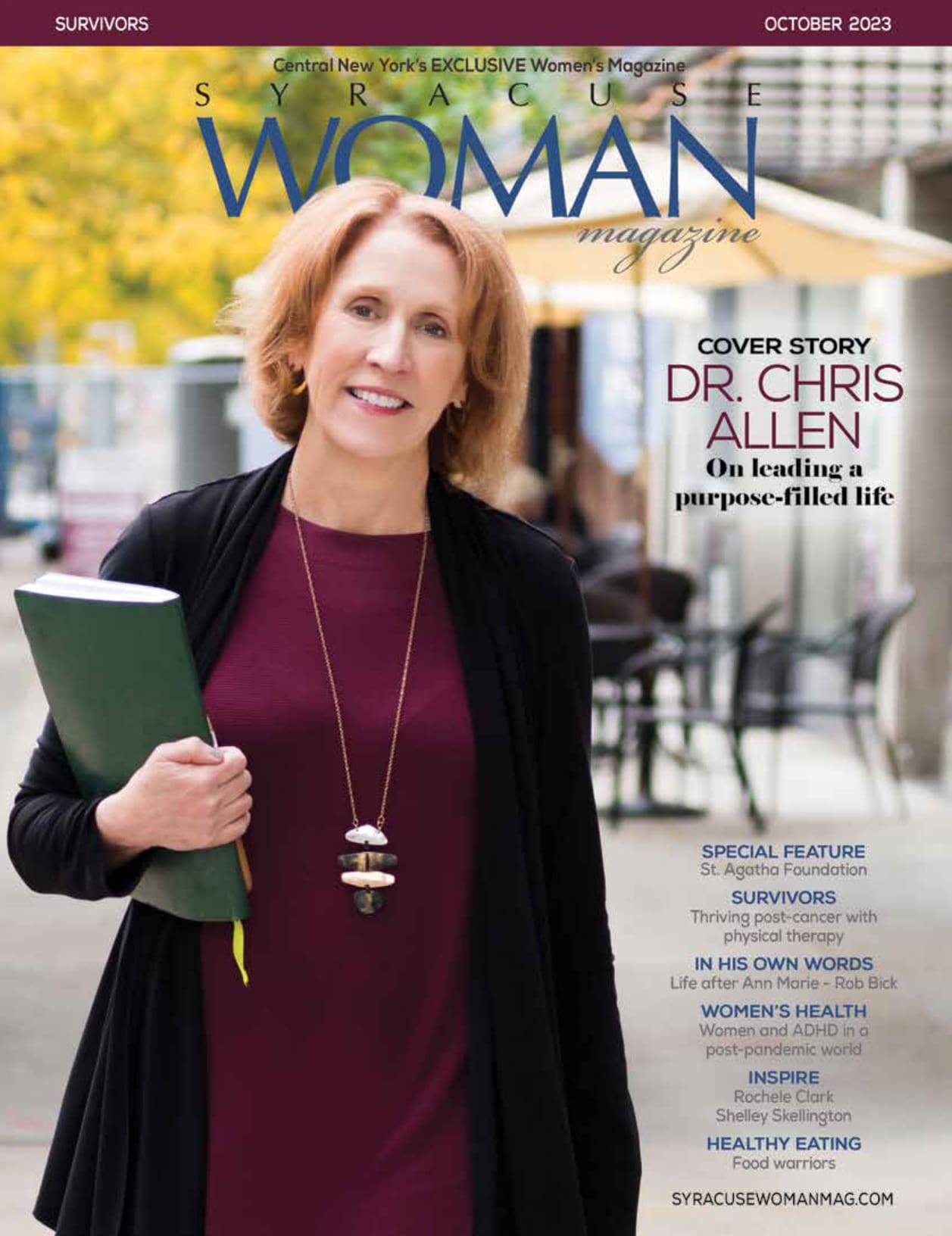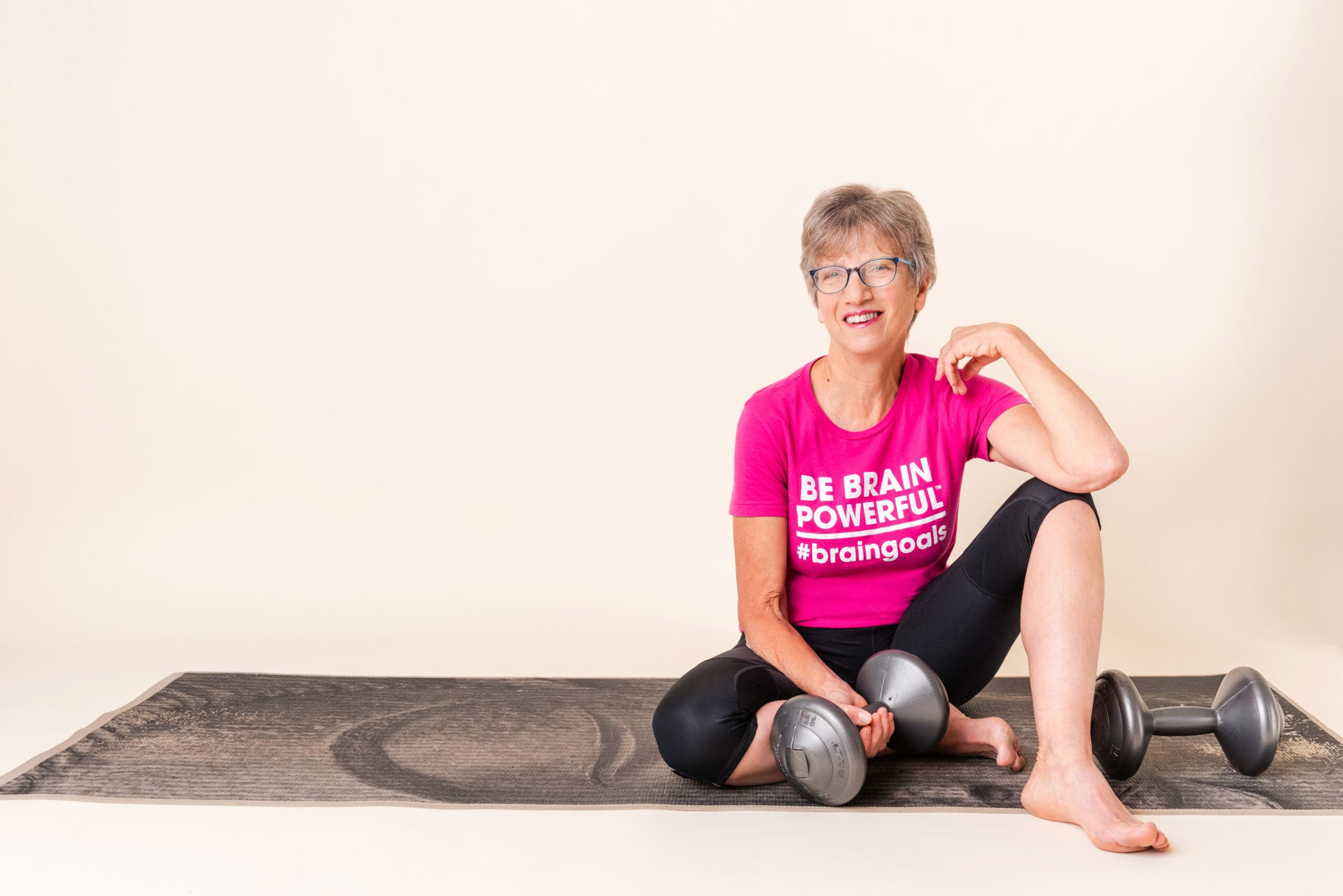By Ken Sturtz
Photos by Alice G. Patterson
Jen Liddy was once a high school English teacher, more concerned with grading papers than entrepreneurship. She and her students killed off Shakespeare’s Julius Caesar each year on the Ides of March and plowed through the dense undergrowth of “Lord of the Flies.”
But as a teacher Liddy could not have imagined she would change careers, become a small business owner and then pivot to helping other entrepreneurs achieve their goals.
Today, Liddy is the owner of Jen Liddy Coaching & Development. Her Syracuse-based business focuses on supporting women entrepreneurs in learning how to create content marketing for their businesses.
She grew up on Long Island and after college spent a few years working in New York City and, as she says, trying to figure out what she wanted to do when she grew up. She eventually settled on education, entering Le Moyne College in the late 1990s to earn her master’s degree. She taught in Skaneateles, Fayetteville-Manlius and then at Cayuga Community College in Fulton.
Liddy loved teaching, but the challenges of the job gradually wore her down. So, when a business opportunity came along in 2013, she made what she says was a difficult decision to leave education and try something new.
“I left because I was kind of burned out from teaching,” she says. “I felt I was always trying to get the attention of people who didn’t really want to be in the room.”
She went into business with two friends, opening a 9,000-square-foot fitness studio in East Syracuse. They needed someone to handle the operations side of the business and that’s where Liddy focused most of her time. But she had gone from teaching, which she knew a lot about, to running a business, about which she knew very little. It was like learning to drink from a fire house, she says.
“It was like getting a PhD in business, but also in myself,” she says. “I learned what I was good at and what I sucked at.”
The fitness studio gave Liddy a crash course in how to run a business, but it had not afforded her any kind of meaningful work-life balance. From the start 60-70-hour workweeks were the norm and she steadily grew tired; the workload was a drain on her family.
She and her partners were able to cover their expenses, but any profits went right back into the business. Liddy was in her mid-forties at that point, and she says she became concerned that she wasn’t adding anything to her family’s long-term financial future.
Most of her time at the studio was spent at the front desk, which afforded her the opportunity to strike up conversations with clients. She soon realized that many of their clients were very creative, entrepreneurial women, but that they faced similar challenges in their efforts to start or grow their businesses.
“I learned about their dreams and what they wanted in their businesses, but they kind of couldn’t get out of their way,” Liddy says.
Those conversations encouraged her to go into business coaching. She left the fitness studio, which closed in 2017. Her husband and son quickly noticed a change in her demeanor. She says the experience taught a valuable lesson, that she needed to learn how to work without burning out. About a month after leaving the fitness studio Liddy began business coaching.
“I never thought about going back to get a regular job because I was so used to working for myself,” she says. “I knew the next thing was going to be helping women business owners.”
Many of her first clients were women she had met through the fitness studio. Her foray into business coaching wasn’t without a good deal of self-doubt. Who am I to do this? Liddy asked herself frequently. She says at the start she worried a good deal and suffered from more than a hint of impostor syndrome.
But she grew her coaching business and gradually realized that many of her previous experiences had prepared her to help entrepreneurs.
She says she also benefited from having a very supportive partner in her husband, who cheered her on even in moments when Liddy felt like she didn’t know what she was doing. Her husband is also a business coach and consultant with decades of experience. She says that as helpful a resource as he is, they generally stay out of each other’s business. This is due in part to the fact that they each have unique focuses, in Liddy’s case women entrepreneurs.
Liddy continued growing her business, but realized that she truly shined when working with clients on writing, speaking and communications. In early 2020, she began focusing mainly on her work as a content creation specialist.
A content creation specialist helps people understand how to effectively connect with their audience. When people think about content creation they usually think of social media, Liddy says, but it can take the form of anything from long form writing, short form videos and email, to a LinkedIn bio, blog posts and podcasts (Liddy hosts a podcast, Content Creation Made Easy, in which she discusses strategies for content creation and marketing).
In the case of business owners, the goal is to help them cut through the confusion to nurture content so they can grow their business.
“Most people are geniuses at what they do, but they’ve never really been taught how to speak to their audiences,” Liddy says. “They just feel burdened by this extra thing they’re supposed to be good at, which is content marketing.”
When working with clients Liddy teaches them how to connect with the right audience so they can gain their audience’s trust and eventually make them customers. That means creating content to speak to their audience in a way that resonates with them.
Entrepreneurs have often done a good deal of learning, listening and watching by the time Liddy meets with them. They usually have a sense of the direction they want to go in with their content creation, but need help getting there, she says.
Often, she helps people clarify their voice, cut jargon out of their content and fine-tune their message. For example, she has a client who marketed herself as a food and body love coach. But it wasn’t not entirely clear who was being targeted, so they worked on the client’s messaging, Liddy says. Since the client works with a very specific population, they developed messaging to reflect that: I help veteran dieters who are tired of dieting end their battle with food. That messaging better articulates what the business is and attracts the right audience.
Liddy’s decision to focus more on content creation turned out to be a winner. Her first six-figure year was in 2020. She says the pandemic pushed everyone online and reinforced for people just how important effective content creation really is.
Reflecting on her career and the twists and turns it took to get to where she is, Liddy says she slowly realized that so much of her previous experiences were preparing her to be a business coach and content creation specialist.
She had excellent communication skills from her teaching days. She had also taught classes in personal development in addition to English. And from running a business she understood firsthand the exhaustion and head-spinning challenges many women business owners faced.
“When you’re in the middle of something you might wonder about it, but when you step back you see all the pieces of what you’ve done really do weave together,” she says.








You must be logged in to post a comment.